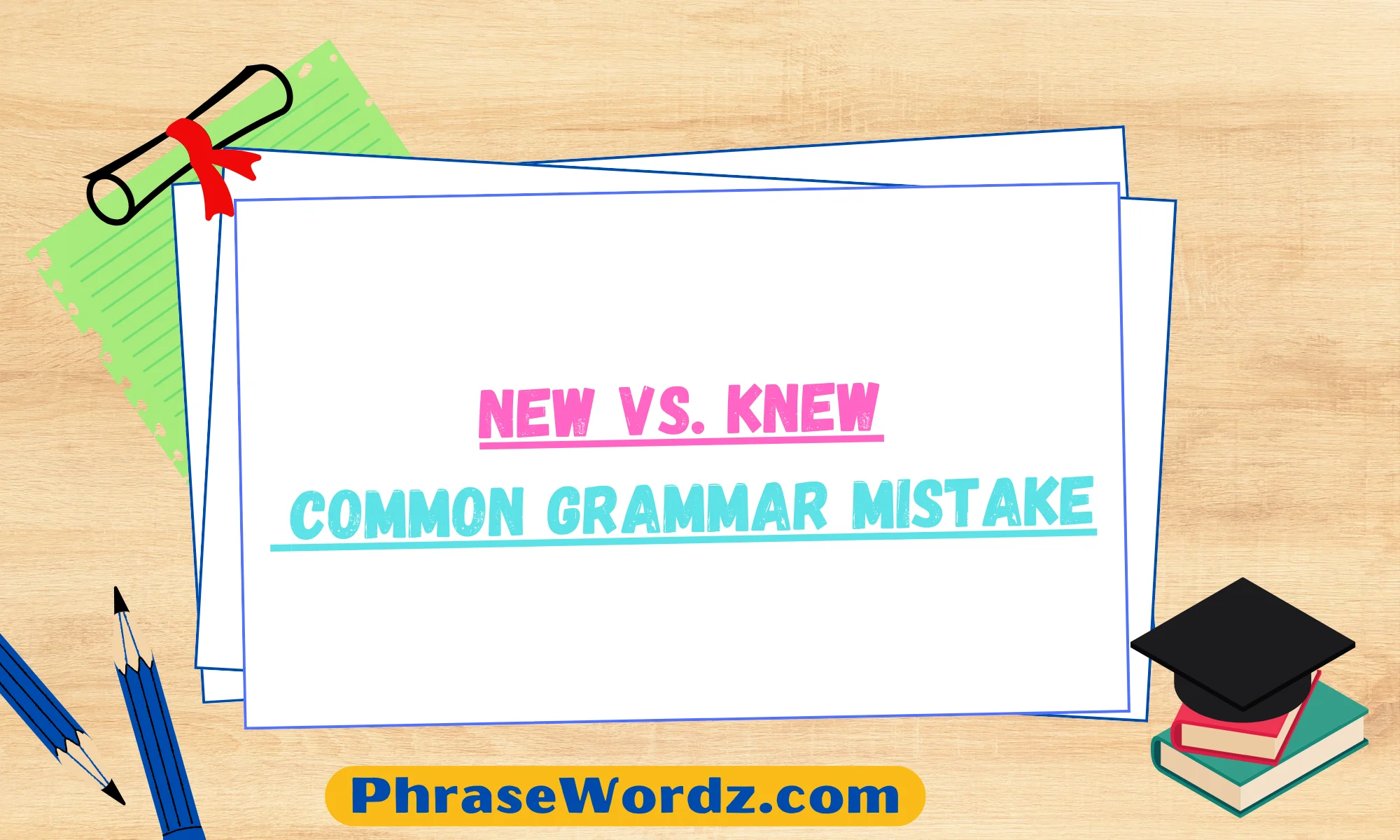English is full of words that sound the same but have entirely different meanings and spellings. These words, often called homophones, can create confusion even for native speakers. Two such words are “new” and “knew”.
Understand the difference between “New vs. Knew” with this engaging guide. Learn how to use these commonly confused words correctly, avoid errors, and improve your communication skills in both writing and speaking!
Despite their identical pronunciation, their meanings and usages are distinct. This article dives into the differences, common mistakes, and practical usage of these words to ensure clarity in communication.
Understanding “New”
The word “new” is an adjective that describes something that has recently come into existence or is being introduced for the first time. It relates to novelty, freshness, or recent origin.
Examples:
- I bought a new car yesterday.
- She is excited about her new job.
- This store sells the newest fashion trends.
Common Contexts:
- Products or inventions: A new smartphone model was just released.
- Experiences: I’m learning a new language.
- Relationships: They made some new friends at the event.
Understanding “Knew”
On the other hand, “knew” is the past tense of the verb “know.” It signifies awareness, understanding, or familiarity with something or someone in the past.
Examples:
- I knew the answer to the question.
- She knew him from their college days.
- They knew the risks before proceeding.
Common Contexts:
- Past knowledge: He knew what needed to be done.
- Familiarity: I knew her as a kind person.
- Memory recall: We knew it was going to rain.
Common Grammar Mistakes
Mistake 1: Misusing “New” for “Knew”
Error: She new the recipe by heart.
Correction: She knew the recipe by heart.
👉 Explanation: Since the sentence refers to past knowledge, “knew” is correct.
Mistake 2: Misusing “Knew” for “New”
Error: I bought a knew dress.
Correction: I bought a new dress.
👉 Explanation: The sentence talks about something recently purchased, so “new” fits.
Scenario 1: Email Misunderstanding
Subject: Feedback on the New Product Launch
Email:
Hi Sarah,
I wanted to share some thoughts about our new product launch. While reviewing the feedback, I noticed that many customers appreciated the innovation. However, a few issues were reported about the app functionality.
On another note, I knew this product had potential, but the response has exceeded expectations. Let’s schedule a meeting to discuss how we can address the concerns.
Best regards,
John
Analysis:
This email demonstrates the correct usage of “new” (to refer to a recently launched product) and “knew” (to reflect past awareness).
Scenario 2: Casual Conversation
Situation: Elizabeth and Darcy are discussing a surprise.
Elizabeth: Did you hear about Jane’s new car? It’s stunning!
Darcy: Yes, I saw it yesterday. I knew she was planning to buy one, but I didn’t expect it so soon.
Analysis:
In this dialogue, “new” highlights the novelty of the car, while “knew” indicates prior knowledge of Jane’s plan.
Describe the Difference Between “New” vs. “Knew”
| Aspect | New | Knew |
|---|---|---|
| Part of Speech | Adjective | Verb (past tense of “know”) |
| Definition | Something that recently came into existence | Past awareness or understanding |
| Pronunciation | /njuː/ or /nuː/ | /njuː/ or /nuː/ |
| Example Usage | “This is a new idea.” | “I knew this was a great idea.” |
Tips to Avoid Confusion
- Understand Context:
Pay attention to whether the sentence refers to time (past knowledge = knew) or novelty (something new). - Practice Sentences:
Write sentences using both words to strengthen understanding. - Proofread:
Re-read your writing to ensure correct word usage.
Conclusion
Confusing “new” and “knew” is a common error, but with clarity and practice, you can avoid this mistake. Always consider the context and remember the fundamental differences in meaning and usage.
Whether you’re writing emails, essays, or casual messages, mastering these homophones will enhance your communication skills.











